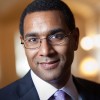Much has been written about the devaluing of expertise and experience: the questioning of scientific knowledge, the flattening of what constitutes insight into complex topics such as foreign affairs, and the assertion by political leaders that “gut” is more important than information when making important decisions. Tom Nichols details this trend in his 2017 book “The Death of Expertise” and includes higher education among the institutions where this trend is visible.
Nichols contends that the devaluing of expertise broadly in culture results in the devaluing of the traditional classroom experience. Students, Nichols contends, increasingly value their experience as equal or even superior to the faculty that teach them, something Nichols ascribes to a “consumerist” mentality: the desire of students to be pleased, and of institutions dependent on student enrollment to please them. In somewhat typical fashion of contemporary critics of higher education, he links this to grade inflation, the “watering down” of curricula, and the stifling of free speech on campus. The chapter on colleges at times feels like a lament for the “good old days” where blind deference to authority was the expected norm.
While the trend of devaluing of expertise is certainly real (and, if anything, has accelerated in the years since Nichols wrote his book — even he could not imagine a scenario where folks would look to an NFL quarterback for vaccination advice, especially one who proudly takes his information from a podcaster with no medical expertise), the impact on classrooms and campuses is not what Nichols describes. The concept of a faculty member as solely a “sage on a stage,” imparting knowledge unidirectionally to students, has long been replaced by faculty who actively support students in expressing their ideas. The teacher has knowledge, experience and expertise that are critical to making this work. And at colleges such as Kenyon, not only is that knowledge respected, but it is applied to mentor and encourage students to bring their own perspectives into the conversation. Respect by students for the expertise and insight of teachers is not the same as a blind deference; and this respect is reciprocated by a respect for teachers towards their students.
Faculty are not the only mentors to students on a college campus, and they are not the only ones with experience and expertise who recognize the value of student voices and the contributions students make. This is true of staff as well. And this is where I have, at times, seen the trend Nichols describes: in the learning spaces outside of the classroom, the expertise and authority of staff has been called into question by students and faculty alike.
Until I made the shift from full-time faculty member to administrator, I had little appreciation for the complexity of the work outside of the classroom, and not a small amount of arrogance about my ability to understand work far from my own expertise. Nichols himself underscores this by situating faculty as the primary holders of expertise on campuses. But this framework often undervalues and diminishes the many contributions of staff across the institution.
For example, I have been in meetings at Kenyon where someone has insisted that students are the “real experts,” not the staff who may supervise or direct them, perpetuating a divisive and destructive narrative that staff lack the expertise to make good, informed decisions about the work in their department. Students contribute a great deal to the departments in which they work and learn. Yet identifying them as the “real experts” is consonant with a larger social trend where experience and expertise are undervalued.
The pandemic has accelerated this trend by placing many staff on the front lines of making and executing decisions that are unpopular but necessary. In fact, at the moment when staff in all parts of the institution have applied their professional training to a wide range of problem-solving under very stressful circumstances, these same members of the community have been questioned persistently on their judgment and ability. Sadly, there have even been moments when staff members have been verbally and publicly attacked. This is unacceptable; no one — staff, students, faculty — should be subject to abusive behavior anywhere on this campus.
Many of our staff colleagues have long service at the College, have received recognition for excellent work by people beyond Gambier, and have deep roots in the local community. When they make recommendations or decisions, they are thoughtful and well-informed. And they approach their work with students as mentors, respecting the abilities of students to contribute ideas and perspectives to their work.
Everyone who comes to Kenyon is here at least in part because of their talent, experience or expertise. The power of a residential college is that learning can take place beyond the walls of academic buildings. But it can only take place if there is a mutual respect for the wells of experience and knowledge around us.
